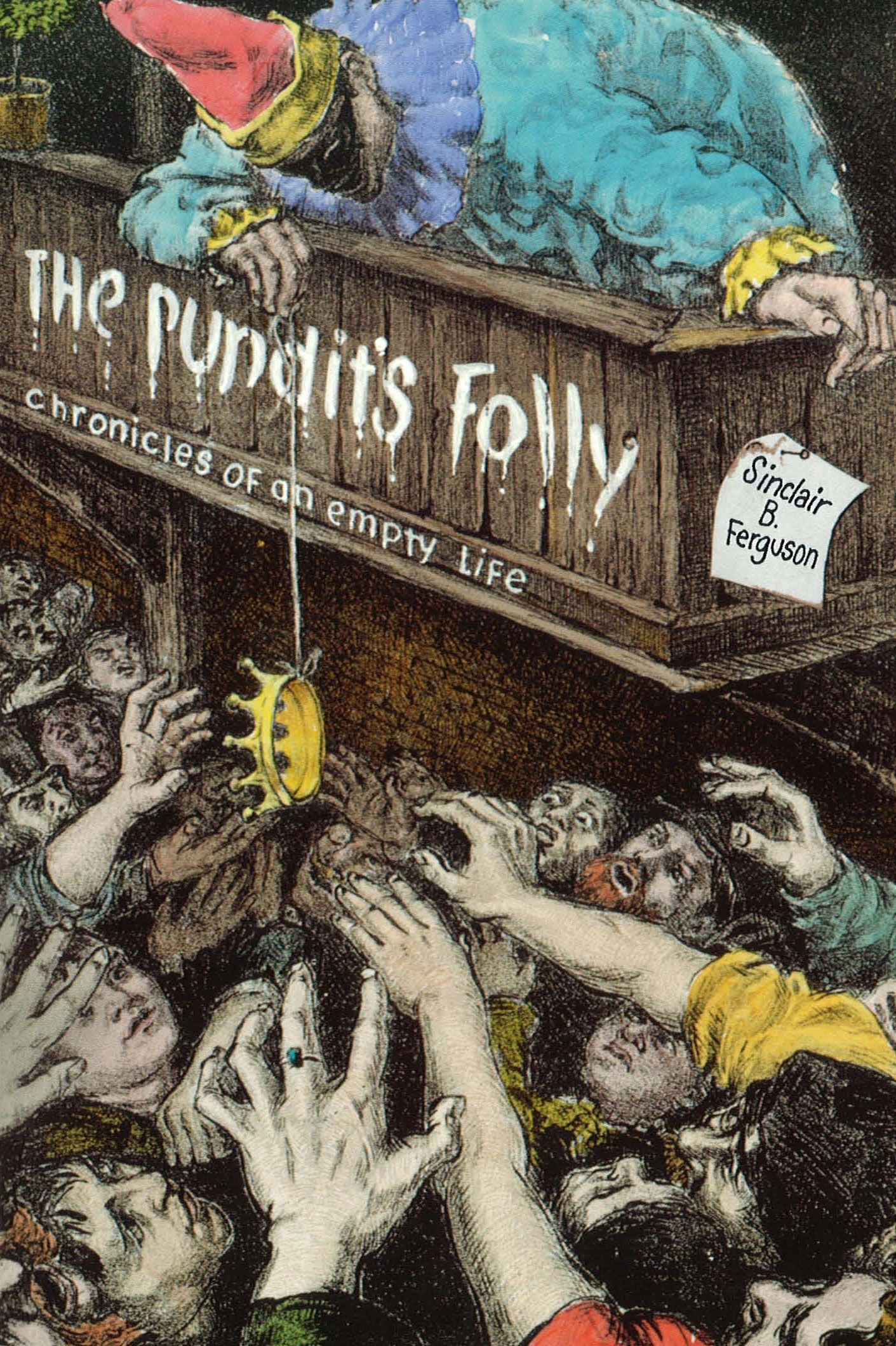Romans 1 Reconsidered
Everywhere we turn it is evident and inescapable that something is definitely and desperately wrong with us as human beings. We need only to look at the papers, turn on the television, or browse internet news sites for a short while and we will see that day after day tragedy follows upon travesty, with sickening regularity.
The world we live in has its own way of looking at the state it is in. Before his election to office as Prime Minister of the United Kingdom, David Cameron spoke repeatedly on the campaign trail of ‘Broken Britain’. But shortly after taking up residence in 10 Downing Street he launched a campaign with the title ‘Invest in Great’, making the statement that ‘Britain today is simply a great place to visit, study and work. A great place to invest and do business’. In truth politics and opinion pieces can offer no real answers as to why things are wrong, less so can they give answers on how to put things right.
In this article, we are going to examine the whole area of brokenness in our lives and in our world, from a biblical perspective. We are going to find unique and coherent answers to why mankind is in the mess it is in, and where the world has gone wrong. Very often Romans 1 is quoted to deal with specific social issues and public sins, but we are going to come at this question from a slightly different position and perspective. We are not going to think these things through in isolation from the book of Romans, but in continuity with what Paul has to say generally in this chapter, and specifically in this section. We are also not going to think these matters through pessimistically, but with the great goal in view of understanding what the bad news is for humanity, so that the good news of the rest of Romans is seen in perspective and in all its power.
Romans chapter 1 is preoccupied with telling us a little about who Paul is, who the Romans are, and what this letter is really about. Paul is an apostle of Christ, a man who has devoted his life to proclaiming Jesus as an eyewitness of his resurrection, that he is Lord. Paul wants to come to Rome to share with the believers there, and also to be sent by the believers there to Spain: with the goal constantly in mind of seeing more people come to Christ.
In the verses just prior to those we are considering in this article, Paul has spoken warmly and personally about the gospel of Christ. He longs to share it with the Romans and be refreshed with them, he is compelled as a man in debt to all mankind to share the Good News of Jesus Christ, and he is utterly unashamed in so doing as he knows that the gospel has power to reveal the righteousness of God, and to confer it on those who have simple and single faith in Jesus.
Now as we approach the close of chapter 1 we are going to see that Paul’s main point it to prove the universal need of human beings to receive God’s grace and know God’s salvation. If Romans 1:17 teaches is the what of salvation (God’s righteousness to us) then Romans 1:18-32 will begin to show us the why of salvation: why we need God’s good news.
Within these verses are some dark truths, but they are also indispensable truths in that they help us to think about what sin is, where sin leads to, and why Christ’s sin-saving work s so important. In Romans 1:18-32 Paul will outline sin in the Gentile world, and then from the beginning of Romans 2 he will highlight sin in the Jewish world. By chapter 3 he will have proven why all people are equally and utterly in need of grace.
If we break this long section of verses into two parts, it may make it easier to digest:
Rebels Without a Cause (vv18-23)
Romans 1:18 is profoundly connected with what Paul has said in 1:17, and the omission of the connecting word ‘for’ in some of our Bibles is a sad one. Paul has said in 1:17 that the gospel of God can make us all right, and 1:18 shows us that the reason why we need this is that we are all wrong. Two revelations are referenced in 1:17 and 1:18. In the first verse we are told that the gospel reveals God’s righteousness, whereas in the second verse we are told that the present time reveals God’s wrath. Romans 1:16-17 have spoken of God as able to save, but 1:18 speaks of him as God who is angry with sin. Each of these truths is dependent on the other.
Romans 1:18 summaries God’s fundamental attitude to all of humanity, and it is one of wrath. This wrath of God is not capricious, but judicious; it is not whimsical but warranted — there are clear reasons and motives for God to be angry and wrathful. Behind the wrath of the Almighty is ‘the godlessness and wickedness of men’. Godlessness here may refer to the first four of the Ten Commandments, and wickedness may refer to the last six of the Ten Commandments. In short the sin spoken of here is against God and against others, it is a sin which incenses God, and which gives the reason for his wrath.
Paul, however, is not content with skimming the surface by simply speaking of sin. He now goes on to show the true nature of sin, and in doing so he shows that there is a definite sequence that sin follows. Men and women ‘suppress the truth’, that is they drive down and drive away the abundantly clear evidence that God is there. Verse 19 speaks of a God who reveals his reality and his identity, his power and divinity, through creation ‘clearly being understood from what was made’. God, in other words, is real, he is revealed and tragically he is rejected. And this rejection of God is not because of an absence of evidence, but in spite of an abundance of evidence. Human beings have this innate sense that there is a Creator God, but they push it down and in turn become rebels without a cause — v20 ‘they are without excuse’.
So what does this rejection of the truth, and suppression of it look like? We can summarize this in a simple phrase: ‘ungrateful idolatry’. Verse 21 tells us that these people know God, but they spurn him, they darken their minds, and ultimately they become foolish (vv21-22). The external outworking of this inward rebellion is an awful exchange: the glory of the immortal God for idolatrous images. Mankind here is set on not worshiping their maker, and this leads to a downwards spiral from worshiping man, to birds, to animals, to reptiles.
Paul is powerfully and with pathos portraying humanity’s tragedy: they will gladly refuse to worship the God whose glory fills the heavens, in favor of worshiping a lizard whose belly licks the dust. So here is humanity, rebels without a cause, rejecting God, incurring the wrath of God against their rebellion.
All of this teaching should cause us to pause for a moment, and consider Paul’s teaching. What is recorded here is deeply counter-cultural. Mankind is not inherently good, but innately sinful. Mankind is not naturally full of virtue, but full of vice; sinful, separated and censured by God. And what we are dealing with here is not merely anthropology or even theology, but the biography of all people, including ourselves.
Rebels Without Control (vv24-32)
Paul, then, is not pulling punches. We need the righteousness of God in the gospel, because of the wrath of God against sin, and this teaching is not philosophical, but behavioral. What is true internally of human beings is evident externally; in other words the sin which is within will ultimately and necessarily lead to sin without.
What the final verse of Romans 1 show is that sin in the heart leads to sin in the hands, sin in the soul leads to sin in society. In verses 18-23 we witness mankind giving God up, but in verses 24-32 we see God giving mankind up, ‘therefore God gave them over’. What follows is a chilling picture of human society adrift from God: rebels without a cause are now portrayed as rebels without control, and Paul paints in the darkest of colors what living this was looks like:
Sexual Impurity
The man who degrades God, will degrade himself. In case we missed it in verse 24, we are reminded for a second time in verse 26 that ‘God gave them over’, this time specifically to shameful lusts.
It is precisely these pages that some people could wish were plucked from the Bible, but there is no avoiding the truths they contain. Paul here portrays the final banner of man’s rejection of God as being his abandonment to sexual impurity, specifically homosexual sin. To exchange God for idols, will ultimately lead to exchanging the logic of heterosexual intercourse for the moral and biological cul-de-sac of alternative sexual practices.
It is important to note that this section of Romans is not an extensive treatment of homosexuality and lesbianism, but Paul is making it plain that homosexuality is sin, and a sin which shows where man goes and what man does when he divorces his life from God and his Law. And this exchange is not just in terms of leaving behind the moral law, but also the very laws of nature which illustrate via mere human anatomy the God-given passions and sexual functions which are part and parcel of our personhood. The practices depicted in Romans 1 do not signify the flourishing of people liberated from draconian and outdated principle, but people who are now enslaved by unguarded and ungodly conduct.
Moral Bankruptcy
Romans 1 doesn’t pick on people of a certain orientation or whose sinful rejection of God expresses itself in one behavior. Paul has not written a diatribe against any of the modern lobby-groups or special interest organisations who advocate homosexual practice — nor is he merely condemning a prostituted first-century version of sexual sin. Instead he is showing where mankind slides to when it is rejected by God, and sexual sin is only part of the picture.
The list of sinful behavior that closes this chapter is somewhat depressing, all the more so because it is recognizable in ourselves and in our society. Wickedness, evil, greed, depravity, envy, murder, strife, deceit, malice, gossip, slander, God-hating, insolence, arrogance, boastfulness, disobedience to parents, senselessness, faithlessness, heartlessness, and ruthlessness are all streams which follow from the source of setting God aside in favor of godless ideology and idolatry. What we have here is an inglorious snapshot of the human heart, whose crowning corruption, in verse 32, is that mankind is not merely capable of committing these sins, but is skilled in making them socially acceptable, entirely normal, even morally desirable.
All of this teaching in Romans 1 leads to certain obvious implications, and should prompt a heartfelt response from us. We should look at these verses and see that:
This is what we are: without God’s grace we are sinners, only sinners, always sinners under the wrath of God. These verses should make our emotions rise in indignation, not primarily at society but at ourselves. If we feel the burn of these words, we will rejoice in the balm of the gospel that, Paul declares, reveals a righteousness from God that is by faith from first to last.
This is a great place to take non-Christians, to aid them in their understanding of what the gospel of Jesus Christ claims. If our description of sin is merely topical then our presentation of Christ will appear whimsical, as though it is an answer to question that non-Christians aren’t asking, or the solution to a problem they don’t have. Romans 1 brings to us a compelling and convicting picture of where men and women stand with God, and this is a marvelous place to proclaim God’s broken Law.
Finally these verses carry a strong social message. The morals (and lack of them) that it delineates are no less sin today than they were when Paul wrote these words. We need boldness, but also sensitivity and humility to show the world that we stand condemned before a holy and wrathful God. Our problem is bigger than simply letting God down, it is bigger even than the issue of homosexuality, our problem is ingrained in our nature and exhibited in our behavior as those who have suppressed God’s truth and who will incur God’s wrath if we have not come to Him by faith for forgiveness.
The saving truths much of the rest of Romans outlines, are brought into sharp and blessed relief by the darkness of these verses in chapter 1. May God give us grace to apprehend them, apply them, and preach them to a world for whom their truths are all too relevant.
Of Further Interest

The Pundit’s Folly
Chronicles of an Empty Life
Description
Everywhere we turn it is evident and inescapable that something is definitely and desperately wrong with us as human beings. We need only to look at the papers, turn on the television, or browse internet news sites for a short while and we will see that day after day tragedy follows upon travesty, with sickening […]

All Things Made New
John Flavel for the Christian Life
Description
Everywhere we turn it is evident and inescapable that something is definitely and desperately wrong with us as human beings. We need only to look at the papers, turn on the television, or browse internet news sites for a short while and we will see that day after day tragedy follows upon travesty, with sickening […]

Romans 1
Volume 1: The Gospel Of God
Description
Everywhere we turn it is evident and inescapable that something is definitely and desperately wrong with us as human beings. We need only to look at the papers, turn on the television, or browse internet news sites for a short while and we will see that day after day tragedy follows upon travesty, with sickening […]
Latest Articles
A Call to Preserve Evening Worship Services July 26, 2024
The following was published as ‘Preserve Evening Worship Services!’ in the October 2007 edition of the Banner of Truth Magazine (Issue 529). It was written by Michael G. Brown, who at the time was pastor of Christ United Reformed Church, Santee, CA. He currently pastors Chiesa Riformata Filadelfia in Milan, Italy. ‘Why do you go […]
How to Read a Soul-Improving Book June 20, 2024
The following, which appeared in Issues 611–612 of the Banner of Truth Magazine (Aug–Sep 2014) is from John Angell James, The Anxious Inquirer After Salvation Directed and Encouraged*. We are grateful to Mr Martyn Jolly for bringing this extract to our attention and supplying the text. It may seem strange to some persons, that I […]
